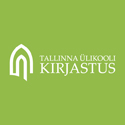Eesti punkluule ja siirdeajastu algus [Estonian punk poetry and the beginning of the transition period]
Abstract
Ülevaade. Artikkel käsitleb siirdeajastu alguse üht huvitavamat kirjandusnähtust, eesti punkluulet, mis 1980. aastate lõpus arenes kiiresti subkultuursest nišifenomenist poliitiliselt angažeeritud isamaaliseks protestikirjanduseks ja oli nähtavas rollis laulva revolutsiooni ajal. Samal ajal sisenes punkluule ka jõuliselt eesti kirjanduskaanonisse, seda märgatavalt laiendades. Punkluule tõi kirjandusse uued võtted ja jooned (kõnekeelsus, madalate kategooriate poetiseerimine, luuletekstide jõulisus ja intensiivsus, terav ühiskondlik protest jm) ning oli 1990. aastate kirjandusmurrangute eelkäija. Kui punkluule poliitiline angažeeritus jääbki laulva revolutsiooni perioodi, siis eesti kirjanduskaanonisse on punkluule end kinnistanud. Seda näitab nii punkluule käsitlemine kirjanduslugudes, kaasatus gümnaasiumi riiklikusse õppekavasse kui ka käsitlemine mitmetes kooliõpikutes.
Võtmesõnad: punkluule, siirdeajastu, kirjanduskaanon, laulev revolutsioon, poliitiline angažeeritus
Abstract. The article discusses Estonian punk poetry, which is one of the most inter- esting literary phenomena during the beginning of the Estonian transition period. Punk poetry had become viable in Estonian culture from the early 1980s and its heyday was at the end of that decade. Punk poets utilised both literary and subcultural landscapes, their texts were powerful and intense, using unconventional poetic language, colloquialisms, obscene expressions and expressed sharp social criticism. Punk poetry developed quickly from a subcultural niche phenomenon into a politically engaged patriotic protest literature in the late 1980s and played a visible role during the Singing Revolution. At the same time, punk poetry entered vigorously the Estonian literary canon, changing and expanding it considerably: bringing new techniques and features to literature. Punk poetry was also a precursor to the literary upheavals of the 1990s. While the political engagement of punk poetry remains in the period of the Singing Revolution, its position in Estonian literary canon is secure. This is demonstrated by the analyses of punk poetry in literary history volumes, the inclusion of punk poetry in the national school curriculum, as well as, its treatment in several school textbooks.
Keywords: punk poetry, transition period, literary canon, Singing Revolution, politically engaged literature (littérature engagée)
Võtmesõnad: punkluule, siirdeajastu, kirjanduskaanon, laulev revolutsioon, poliitiline angažeeritus
Abstract. The article discusses Estonian punk poetry, which is one of the most inter- esting literary phenomena during the beginning of the Estonian transition period. Punk poetry had become viable in Estonian culture from the early 1980s and its heyday was at the end of that decade. Punk poets utilised both literary and subcultural landscapes, their texts were powerful and intense, using unconventional poetic language, colloquialisms, obscene expressions and expressed sharp social criticism. Punk poetry developed quickly from a subcultural niche phenomenon into a politically engaged patriotic protest literature in the late 1980s and played a visible role during the Singing Revolution. At the same time, punk poetry entered vigorously the Estonian literary canon, changing and expanding it considerably: bringing new techniques and features to literature. Punk poetry was also a precursor to the literary upheavals of the 1990s. While the political engagement of punk poetry remains in the period of the Singing Revolution, its position in Estonian literary canon is secure. This is demonstrated by the analyses of punk poetry in literary history volumes, the inclusion of punk poetry in the national school curriculum, as well as, its treatment in several school textbooks.
Keywords: punk poetry, transition period, literary canon, Singing Revolution, politically engaged literature (littérature engagée)
Full Text:
PDFDOI: https://doi.org/10.22601/PET.2021.06.02
Refbacks
- There are currently no refbacks.
Published by / Kirjastaja:

ISSN 2504-6616 (print/trükis)
ISSN 2504-6624 (online/võrguväljaanne)
